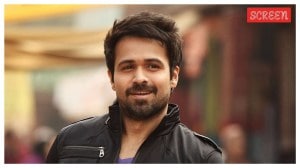McCain can still win
John McCain woke on Thursday morning to what has become a fairly common greeting in these tough last weeks of his campaign.

John McCain woke on Thursday morning to what has become a fairly common greeting in these tough last weeks of his campaign. A raft of polls showing him well behind. Early post-mortems on his candidacy. Even Republicans speaking of him in the past tense. But is it really over?
As McCain enters into this closing stretch, his aides 8212; as well as some outside Republicans and even a few Democrats 8212; argue that he still has a viable path to victory.
8220;The McCain campaign is roughly in the position where Gore was running against President Bush one week before the election of 2000,8221; said Steve Schmidt, McCain8217;s chief strategist. 8220;We have ground to make up, but we believe we can make it up.8221;
Even the most hearty of the McCain supporters acknowledge that it won8217;t be easy, and there are a considerable number of Republicans who say that the 2008 cake is baked.
At this point in the campaign, McCain8217;s hopes of victory may rest on events over which he simply does not have control. Still, there does seem to be enough question marks hovering over this race that it8217;s not quite time for McCain to ride his bus back to Arizona.
8220;It8217;s an uphill battle,8221; said Karl Rove, who was the chief strategist for going back to Bush8217;s first run for Texas Governor in 1994. 8220;But I remember seven days out from the Texas gubernatorial race. And we won by seven points.8221;
Here are what McCain8217;s advisers are watching hopefully as the contest enters its final days.
STATES
McCain8217;s advisers said that the key to victory is reeling back those Republican states where Obama has them on the run: Florida, where McCain spent Thursday; Ohio; Indiana; Missouri; North Carolina; Virginia; and Missouri. If he can hang on to all those states as well as others that are reliably red, he would put into his column 260 of the 270 electoral votes necessary to win.
McCain8217;s advisers are most concerned about Virginia, and understandably so. On the other side of the coin, McCain8217;s advisers believe that if he wins or comes close in Pennsylvania, he will probably win in Ohio and Florida.
ISSUES
Two issues have turned up in the final days, courtesy of some inopportune remarks by Obama and his running mate, Joe Biden. Both have entered the campaign dialogue and it is probably still a little too early to tell whether they will have the impact that McCain hopes they will.
The first was Obama8217;s response to the plumber in Ohio who asked about his proposal to increase income tax rates on households making more than 250,000 a year, in which Obama cited a need to 8220;spread the wealth8221;. McCain seized on it to reprise the 8220;he-will-raise-your-taxes8221; attack that has historically had resonance in states like Florida, Iowa and New Hampshire.
The other was Biden8217;s prediction that a foreign power would test Obama with a crisis in the first months of his presidency. That remark goes to what has been the heart of McCain8217;s argument about the need for the next President to have experience in handling high-stakes situations. No one in Obama8217;s campaign is disputing the potential damage from Biden8217;s remark, but they hope it will be offset by the recent endorsement of Obama by former Secretary of State Colin Powell.
POLLS
Pollsters say there has never been a year when polling has been so problematic. While most national polls give Obama a relatively comfortable lead, he is more closely matched with McCain in many state polls. Even a small shift in the national number could deliver some of these closer states to the McCain camp, making an Electoral College victory at least possible. 8220;The next 13 days will tell the story,8221; said Governor Charlie Crist of Florida, pointing to recent polls showing McCain moving in his state. 8220;I8217;m optimistic. I think he8217;s going to take Florida.8221;
TURNOUT
Obama has made major strides in expanding the voter pool, especially among young people and African Americans; the question is whether first-time voters, especially younger ones, will actually turn out. Consider this: An ABC News/Washington Post poll on Thursday found that first-time voters support Obama by margin of 73 percent to 26 percent.
McCain8217;s campaign looks to history for evidence of how big a step it is for new voters to go from registering, which can take place at a doorstep, to actually voting.
- 01
- 02
- 03
- 04
- 05































